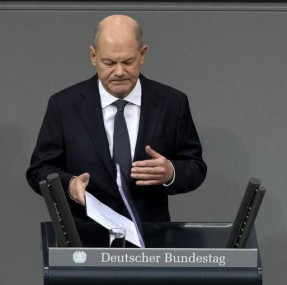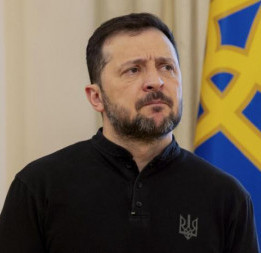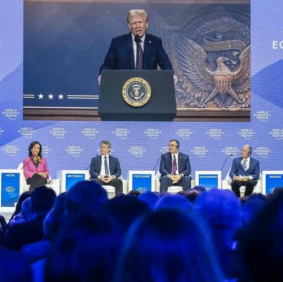The other day, Pentagon chief Leon Panetta, paying a two-day visit to Afghanistan, to a question whether the United States, after their unmanned aircraft had earlier this month fallen into the Iranian military hands, will continue to perform reconnaissance missions using unmanned vehicles, based in Afghanistan, said : “Certainly.”
The Pentagon chief said: “I believe that the Iranians will try to continue to influence the situation in Iraq.” His opinion is not consistent with the President Obama’s view. White House spokesman Jay Carney believes that, despite “all the money spent, Tehran failed to influence the political life in Baghdad. Parliamentary elections in Iraq have proved it.”
Thus, while the White House is trying to find political mechanisms for the prevention from developing of nuclear weapons by Iran, the Pentagon is preparing to power methods of eliminating the issue. “The USA will leave on its bases in several countries of the Persian Gulf about 40 thousand of soldiers to counter potential threats from Tehran,” said Panneta in connection with the withdrawal from Iraq of the last 6 thousand American soldiers by December 31, 2011.
In February 2010, the Chief of Staff, Army-General Nikolai Makarov said, speaking to reporters: “Now the USA is conducting two military operations: in Afghanistan and Iraq, the third will be simply collapse for them. Therefore, as the problems in Iraq and Afghanistan are solved, the USA may attack Iran. Iran is our neighbor and we are closely monitoring the situation. The Russian leadership is taking necessary efforts to prevent this from happening,” said then the Chief of the General Staff.
Thus, the service families have been already taken to Russia from the 102nd military base in Armenia, the military units stationed near Yerevan were transferred to the region of Gyumri, close to the Turkish border, where the U.S. forces’ attacks on targets in Iran may occur. Since December 1, Russian troops at military bases in South Ossetia and Abkhazia have been got fully operational. The Black Sea Fleet ships are drifting near the border of Georgia, which in this conflict may take the side of anti-Iranian forces.
All missile boats of the Caspian Flotilla were redeployed to the district of Makhachkala and Kaspiisk from Astrakhan in order to create here a single ship group. A small gunship “Volgodonsk” and a missile ship “Dagestan” are joining the flagship of the fleet, patrol missile ship “Tatarstan”. They all are equipped with missile systems with range of action up to 200 km.
An aircraft carrier group of the Northern Fleet, led by the aircraft-carrying heavy cruiser “Admiral Kuznetsov”, which intends to put in the Syrian port of Tartus, is headed for the Mediterranean shores. It may happen that it is accompanied by nuclear submarines of the Northern Fleet.
A grave situation is emerging around the 102nd military base in Armenia – this is a key point, Russia’s outpost in the Caucasus. This April, Georgia broke the agreement on military cargo transit from Russia to Armenia. In fact, the Russian-Armenian group in the South Caucasus is already isolated. The supply of the Russian army with fuel, food, etc. is carried out only by air and through direct contracts with Armenia, which, in turn, buys petrol, diesel fuel and kerosene in Iran. The war in Iran would mean the cessation of the supply of the base through this channel.
Some hotheads in Russia’s military establishment believe that in the event of a full-scale war against Iran, Russia will seek ways to secure supplies of the military facility across Georgia through breach of Georgia’s transit blockade and supplies of military means for transport corridors, leading to Armenia via Georgia.
“Next spring or autumn, the beginning of military operations can be expected,” says Alexei Arbatov, head of the Center for International Security of the IMEMO (RAS).
According to him, “from the perspective of Russia’s purely commercial interests, many of us believe that it is not too bad, because oil prices will jump - Iran will be removed from the game as the biggest supplier of raw materials. An additional point is that the NATO European Missile Defense program will be delayed or even canceled because the threat will be eliminated. However, the very bad political consequences will outweigh the economic and strategic benefits, because the Islamic world will explode, a new intifada against Israel will start, and regimes in Pakistan and Afghanistan may collapse under Islamists pressure. Revolutions may start in Central Asia; in the Russian Federation the terrorist activity will burst in the North Caucasus and in large cities. New Arab “democracies” (and possibly Turkey) will settle down to a course of creating a nuclear weapon.”
There is real hope that such an apocalyptic scenario will be not realized. The EU position voiced at the meeting of the EU Foreign Ministers on 14 November holds out a hope thereof. If today’s EU-Russia Summit adopt a statement of non-military methods of pressure on Iran, it can reduce the anti-Iranian tension in the United States.










